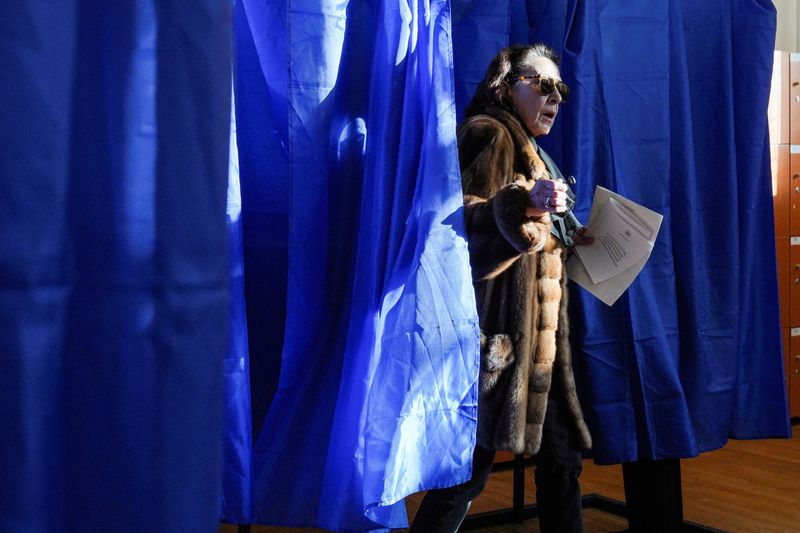BUCHAREST (Reuters) -Romania's President Klaus Iohannis said EU states must work together to counter Russian interference in their elections, after Romanian lawmakers said its annulled presidential vote was the target of cyber attacks, misinformation and propaganda.
Iohannis, who will remain in office after his term ends on Dec. 21 until the election is re-run, said on Wednesday he would raise the issues with fellow European leaders at an EU summit on Thursday.
Romania's top court annulled the presidential election two days before the second and final round of voting on Dec. 8 after the shock victory of a relatively unknown far-right NATO critic in the first round.
The court reached its decision based on five documents declassified by the EU and NATO state's top security council, which alleged Russian meddling but provided little concrete evidence of direct involvement. Russia has denied any interference.
"We have been discussing these matters for years, but it's a long way from knowing the danger exists to finding concrete evidence of what happened," Iohannis told reporters in Brussels.
"Don't imagine these attacks are signed 'With love, from the East'. No, they are very hard to document. We must find concrete instruments, correct procedures to be able to defend ourselves from these attacks."
Late on Tuesday, a Romanian parliamentary committee said it agreed that cyberattacks and misinformation had been used to support Eurosceptic candidates, after reviewing confidential data from the country's foreign intelligence service.
The European Commission opened formal proceedings on Tuesday against social media firm TikTok over its suspected failure to limit election interference, notably in the Romanian vote.
COALITION TALKS
Meanwhile, four pro-European Romanian parties continued talks on Wednesday to form a coalition government after the Dec. 1 parliamentary election in which three ultranationalist and hard-right groupings, some with overt pro-Russian sympathies, won more than a third of the seats.
Coalition talks hit a snag when opposition centrist Save Romania Union (USR) demanded clarity over 2025 taxation and spending plans. On Wednesday, they said they would be a part of a coalition government if a 2025 budget plan was approved in parliament immediately without tax hikes, among other conditions critics said were hard to meet.
The other three parties, the ruling leftist Social Democrats and centre-right Liberals, alongside the ethnic Hungarian party, which could cobble together a small majority without USR, said on Tuesday they would lower the deficit to 7% of economic output next year from an estimated 8.6% in 2024 - the EU's highest.
They said they would shrink public administration, keep a flat tax on income and boost investment, but provided few clues on fiscal consolidation.
Fitch lowered Romania's rating outlook to negative from stable on Wednesday, saying the political uncertainty raised concern about the country's ability to lower the deficit. Bucharest bluechip index fell 2.3% on the day.

"The durability of such a coalition is uncertain and the new presidential election, likely to be scheduled for March 2025 at the earliest, will maintain high political uncertainty, and will likely also delay the implementation of fiscal consolidation measures," Fitch said.
Romania is rated one step above investment grade by all three major ratings agencies.